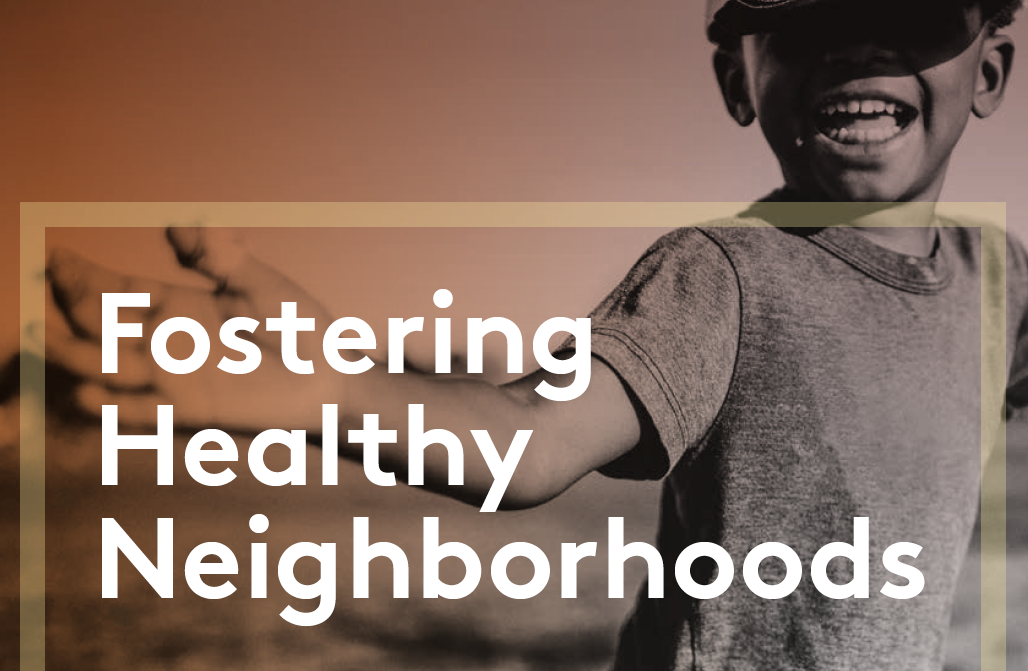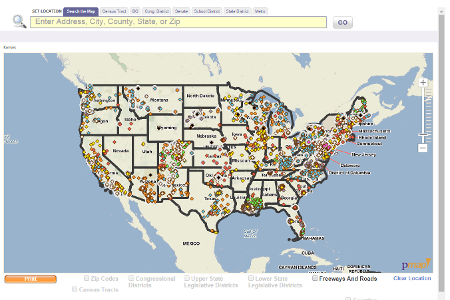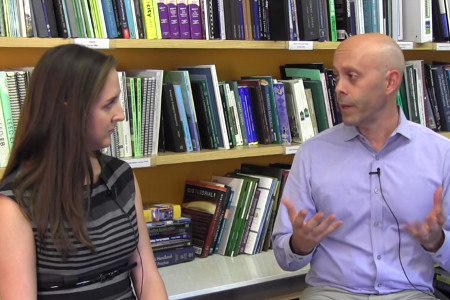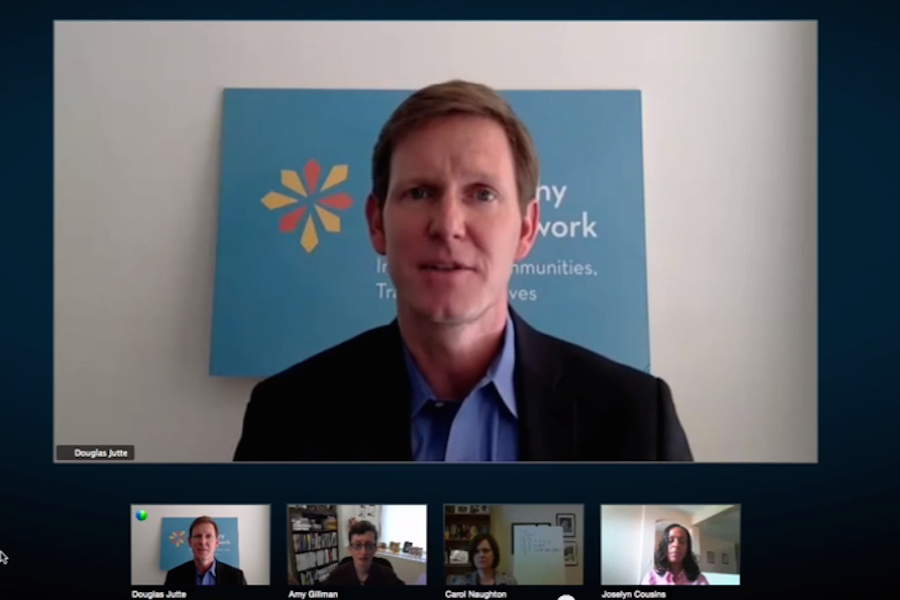
…A new report from the George Washington University funded by the Robert Wood Johnson Foundation and the Kresge Foundation outlines strategy for the Trump administration to expand the role of tax-exempt hospitals in community health improvement Acting under existing legislative authority and without new funding, the new Administration can give hospitals greater flexibility over tax-exempt spending while strengthening their…

Workshop Highlights from the August 9th convening in Cleveland, Ohio Co-hosted by the Build Healthy Place Network, County Health Rankings and Roadmaps, and the Federal Reserve Bank of Cleveland Cleveland-workshop-highlights…

…Financial services are an important form of community development. And as the President and CEO of the Center for Financial Services Innovation (CFSI), Jennifer Tescher is working to improve the financial health of all Americans with a specific focus on the underserved. The Build Healthy Places Network’s Barbara Ray sat down with Tescher in Chicago to talk more about…

…Community Development 2.0—Collective Impact Focuses a Neighborhood Strategy for Health Not all community developers are aware that the work they’re doing has the potential to improve health, but the East Bay Asian Local Development Corporation (EBALDC) has built health into its strategic plan, and in the neighborhood revitalization work of the San Pablo Area Revitalization Collaborative (SPARC), convened…

…Build Healthy Places Network’s Executive Director, Dr. Douglas Jutte, was interviewed by Dr. Gabriel Kaplan, Board President of NACDD (National Association of Chronic Disease Directors). The two discussed the fundamentals of the community development field, the intersection of community development and health, and how the sectors can forge partnerships to increase investment in low-income neighborhoods to tackle health disparities….

…When it comes to the range of social benefits that we can receive from urban green spaces—common areas where people can recreate, volunteer, and connect with others in their city—our understanding continues to unfold. While social isolation can be considered a growing epidemic in the United States, social disconnection may be a root cause of depression and diminished quality…

…The solutions to improve the health of communities often transcend the borders of cities or towns. What do successful cross-sector approaches to health and equity improvement look like when they span different geographical regions? Our November 20th Network Commons sought to answer these questions with the help of experts from the Bay Area Regional Health Inequities Initiative, the Alliance…

…Communities. The principles, synthesized and collated by Build Health Places Network, advocate for community-led solutions that embed equity, collaborate across sectors, and embrace a holistic view of building health and prosperity which strongly aligns with RWJF’s commitment to building a culture of health and addressing health equity. We also note the benefits or ‘health return on investments’ of approaching community…

…By 2010, that had almost tripled to 3,165. Of those original 1119, only about 100 had their poverty rate dip below the national average in that time. (As moderator of this session, I insisted that we not debate whether and when gentrification was coming to those areas. Here’s why.) Panelist Melvyn Colon, executive director of Southside Institutions Neighborhood Alliance in Hartford, Connecticut, spoke…

…An obscure banking rule has quietly funneled millions of dollars into low-income communities, helping to reduce the deep health inequities between low-income and wealthier families in America. But that rule—the Community Reinvestment Act—is now under threat. In January, the three regulatory agencies overseeing the CRA proposed significant changes. For health systems seeking to address the upstream impacts on health,…

…Build Healthy Places Network, Prosperity Now, and Financial Health Network partnered to explore how to foster alignment across the community development, public health, healthcare, and financial well-being sectors. Fostering Healthy Neighborhoods: Alignment across the Community Development, Financial Well-Being and Health sectors presents examples of existing alignment across sectors, opportunities and challenges for increased collaboration including place-based initiatives, and recommendations to…

…I’ve been fortunate to work with practitioners and leaders who have always known that we have a shared responsibility to eradicate inequality. We fight hard for what we know to be right—equitable communities that have good schools, are free of crime and disinvestment, and that are affordable, accessible, healthy, and happy. On most days, our fight already feels like an…

…Rob Grossinger is a vice president at Enterprise Community Partners, Inc., where he works on community stabilization and the intersection of health care and housing. He spoke with Build Healthy Places Network’s Barbara Ray in Chicago. Barbara Ray: Why is an affordable housing developer interested in public health? Rob Grossinger: Let’s start with the overarching holy grail: Affordable housing…

…Created by the Opportunity Finance Network, the CDFI Coverage Map is a tool that measures community development finance institution coverage across the United States: where CDFIs are located, where they are providing financing and other services – including investments in health centers and healthy foods – and how this activity changes over time. Using the map, you can view…

…For decades, the community development and health sectors have worked in the same places with the same people – often, without knowing about each other. In recent years, the sectors have begun to work more frequently together to improve opportunity in neighborhoods where residents face obstacles to health and wellbeing. There are bright spots, but we need more –…

The case studies in this paper explore the relationship between housing and health, explaining how affordable green housing provides health benefits to low-income residents and identifying the benefits of green housing for the environment….

…This report by NeighborWorks America summarizes the development and piloting of the Success Measures Community Stabilization Evaluation Framework, an outcome-focused evaluation framework and set of data collection instruments that organizations and local governments can use to measure and better understand how their focused stabilization efforts are changing key housing market, community condition and resident confidence factors essential to strong…

If it is so well accepted that the health sector alone cannot improve health, why don’t multisectoral programs and policies happen more often and more successfully? Authors from the Institute of Medicine, the Association of State and Territorial Health Officials, the Vitality Group and Physic Ventures write for the Health Affairs Blog about how we should be rethinking…

…Missed the Network Commons on October 5th? Watch the video to hear more about the work of Harris County Public Health and two other Joining Forces Grantees who are partnering with CDFIs! Health Moves Upstream Obesity is one of our greatest health challenges and is strongly linked to the social and economic conditions of communities like poverty, safety, and…

…Center for Healthy Housing provides an overview of key financing strategies, examples of home-based lead and asthma programs that are currently being financed through nonprofit hospitals and public or private insurance, and links to resources that are available to help state and local agencies, or other stakeholders, explore options for healthcare financing of healthy homes in their own communities….

…Place Matters is a national initiative designed to build the capacity of leaders and communities around the country to identify and address social, economic, and environmental factors that shape health inequities. Initiated by the Joint Center for Political and Economic Studies and now operated by the National Collaborative for Health Equity, Place Matters is based on local teams in…

Watch the video below for a discussion between Matt Trowbridge, Senior Research Fellow at the US Green Building Council, and Kelly Worden, Health Research Associate at USGBC, about the importance of the drive to make healthy places investable. Read a Health Affairs article on creating health metrics for the real estate industry, co-authored by Trowbridge and Network executive…

…Active Living By Design (ALBD) created this resource for leaders of local, healthy community partnerships. Its purpose is to serve as a “mentor in print,” providing practical, field-tested strategic guidance to help leaders be more proactive and effective. They developed accessible lessons, principles and examples from the experiences and wisdom of many healthy community partnerships and their leaders. The…

…Investments in place-based strategies to improve health have grown in the past decade from a small number of early adopters to a wide variety of funding partners. These range from local community and conversion foundations to corporations, corporate foundations, regional healthcare systems, statewide managed care organizations, and national networks such as the Y-USA and the United Way Worldwide. In…

…Improving neighborhood environments for children through community development and other interventions may help improve children’s health and reduce inequities in health. A first step is to develop a population-level surveillance system of children’s neighborhood environments. This article, authored by Dolores Acevedo-Garcia and colleagues for the November 2014 issue of Health Affairs, presents the newly developed Child Opportunity Index for…

…This year, The Network is hard at work rolling out many different resources for community development and health practitioners. These resources will come in different forms, from a “jargon buster” that demystifies common industry terms to a one-stop shop of tools to measure the health-related impacts of community development. But the centerpiece of all these resources is a live…

…Collaboration between the health and community development sectors has gained increased attention as a means of accelerating progress to improve community health. This article, authored by Paul Mattessich of Wilder Research and Ela Rausch of the Federal Reserve Bank of Minneapolis, appeared in the November 2014 issue of Health Affairs. It offers an empirical perspective on the general status…

…Schools represent an ideal focus for primary development of Green Health environmental design research focused on addressing both childhood obesity and sustainability. School facilities are pivotal community resources and a central part of each family and child’s daily life. They are mandated and positioned to help form social norms and default behaviors such as those related to health behaviors….

…This report by The Food Trust and The Reinvestment Fund is intended to be a resource for advocates at public health and community and economic development organizations working to increase the availability of nutritious foods and revitalize their neighborhoods. This handbook is informed by more than 20 years of experience working to support healthier food in communities and is…

…Increasingly, local communities throughout the U.S. are adopting a Health in All Policies (HiAP) framework to improve health and equity by incorporating health considerations into decision-making across all sectors. This 90-minute webinar includes a short overview of the HiAP approach, and an introduction to the work of Baltimore’s Cross Agency Health Taskforce and Sonoma’s Health Action, including history, accomplishments,…